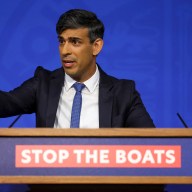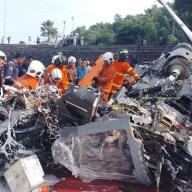Like most South Africans, Sedick Isaacs looks forward to Africa’s first-ever World Cup. But he brings a unique perspective: For many years, Isaacs played in a soccer league run by the political prisoners on Robben Island.
“When we arrived on Robben Island, we immediately organized ourselves,” recalls Isaacs, one of many political activists sent to the infamous prison in the 1960s. “We organized courses in music and economics, and we taught illiterate prisoners to read and write. And we set up a soccer league.” Isaacs, an explosives expert, spent 13 years on the prison island.
Initially the authorities refused to give political prisoners the privilege of playing soccer.
“But one of prisoners discovered that the rulebook allowed prisoners physical recreation,” explains Charles Korr, a professor of sports history at the University of Missouri. “So they formed a committee and wrote letters to the prison warden every week until they were allowed to play. It took 3.5 years.”
Korr is the author of “More Than A Game,” a book about the Robben Island soccer league.
With the help of a smuggled FIFA rulebook, the prisoners formed a three-level league, which included both referees and a constitution.
“The prisoners on Robben Island belonged to two political parties and had never collaborated on anything,” notes Korr. “But they collaborated on soccer. Politics was the most important thing on Robben Island, but the second most important thing was soccer.”
One prisoner, a former professional player who went by the name Pro, taught 300-400 brainy inmates the game. Complete with charts for each team, the league generated huge excitement — sometimes too much.
“We did get into arguments when we played,” confesses Isaacs. “Our rules committee was very busy.”
The sport has come full circle in the nation.
“In 1960, we asked FIFA to expel South Africa”, says Isaacs. “And later they did. Now, we feel that South Africa is back in the community of soccer nations.”
















